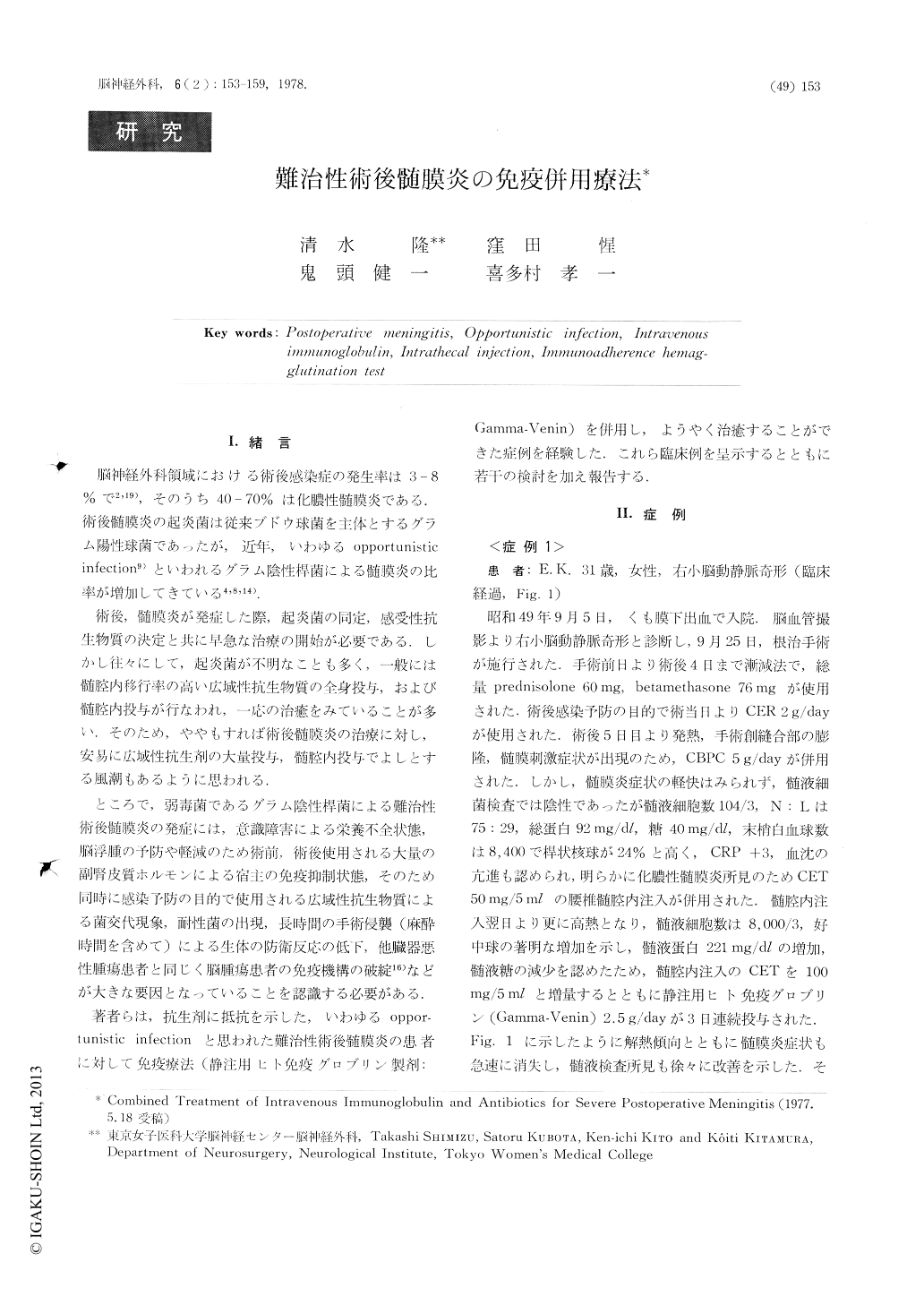Japanese
English
- 有料閲覧
- Abstract 文献概要
- 1ページ目 Look Inside
Ⅰ.緒言
脳神経外科領域における術後感染症の発生率は3-8%で2,19),そのうち40-70%は化膿性髄膜炎である.術後髄膜炎の起炎菌は従来ブドウ球菌を主体とするグラム陽性球菌であったが,近年,いわゆるopportunistic infection9)といわれるグラム陰性桿菌による髄膜炎の比率が増加してきている4,8,14).
術後,髄膜炎が発症した際,起炎菌の同定,感受性抗生物質の決定と共に早急な治療の開始が必要である,しかし往々にして,起炎菌が不明なことも多く,一般には髄腔内移行率の高い広域性抗生物質の全身投与,および髄腔内投与が行なわれ,一応の治癒をみていることが多い.そのため,ややもすれば術後髄膜炎の治療に対し,安易に広域性抗生剤の大量投与,髄腔内投与でよしとする風潮もあるように思われる.
Incidence of postoperative meningitis by gram-negative bacilli infection, so called "opportunistic infections", has recently increased in the neurosurgical field. The opportunistic infection is caused by suppression of the host's immunity and consequently limitation of the host defense mechanisms. Based on the results obtained from 4 cases of postoperative severe meningitis presented here, the authors concluded as follows:
1) Special care must he taken for intrathecal injection of antibiotics because of causing paralytic ileus, convulsion and paraparesis of the lower limbs.

Copyright © 1978, Igaku-Shoin Ltd. All rights reserved.


